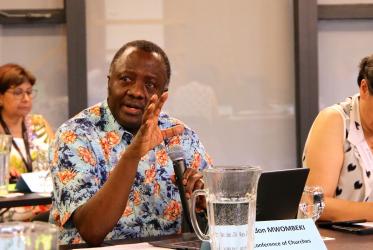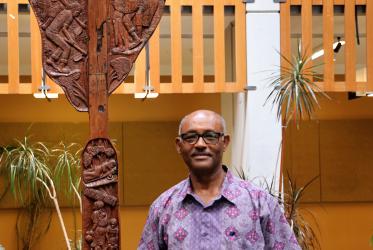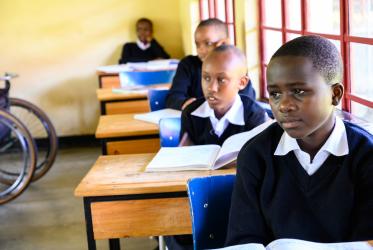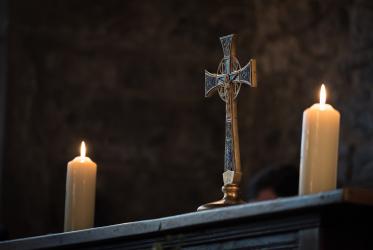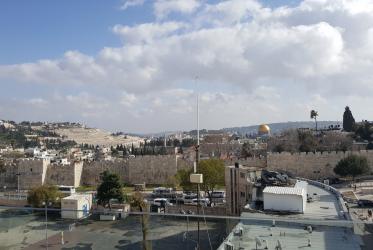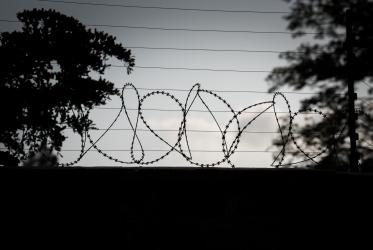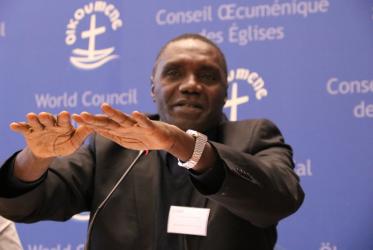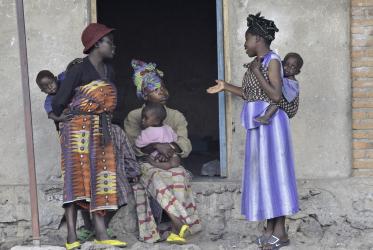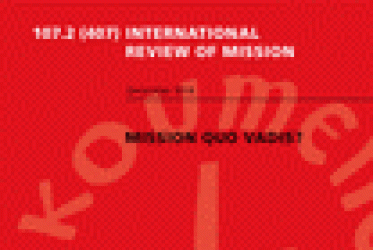Displaying 21 - 40 of 152
Churches in southern Africa stand against violence, xenophobia
10 October 2019
African religious leaders express new concerns over South Sudan peace
19 September 2019
Regional forum in Nigeria centers on banning nuclear weapons
04 September 2019
Former WCC executive finds joy working for peace in Ethiopia
06 August 2019
Mission and people with disabilities
26 June 2019
WCC condemns attack on Christian church in Burkina Faso
30 April 2019
WCC expresses concern, solidarity with people of Sudan
12 April 2019
Agreement works toward food security in South Sudan
23 February 2019
Thursdays in Black flourishes in Liberia
07 February 2019
New issue: International Review of Mission
14 December 2018




